African violet leaves and variegated violets
There are many types of African violet leaves, and sometimes they are even more decorative than the flowers.
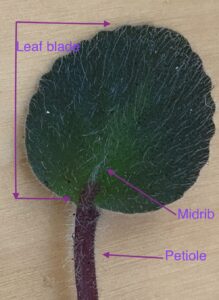
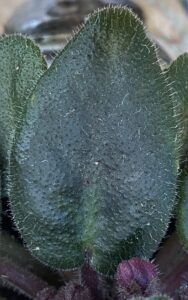
ovate boy leaf
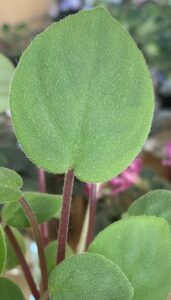
heart-shaped boy leaf
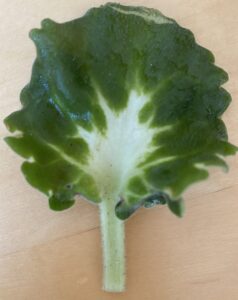
girl leaf
The basic type of African violet leaves are “boy” leaves.
The most common types of leaves are usually round, heart-shaped or ovate.
“Girl” leaves are very attractive and have a light depression in the lower part of the blade.
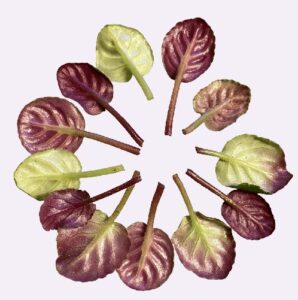
Colour of African violet leaves vary from light, to medium and dark green, while the back of leaves can be green, pink or red.
The edge of the leaves can be plain, scalloped or serrated.
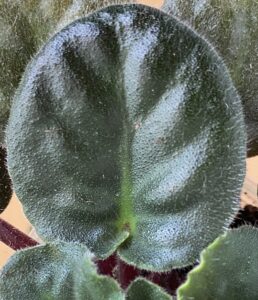
plain edge
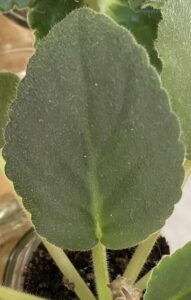
scalloped edge
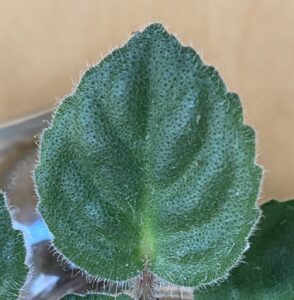
serrated edge
Very often the surface of the leaves is fuzzy. This is useful mainly in the wild nature, where hairs protect the plant against chewing pests, changes in temperature (providing a sort of air blanket) and make raindrops run off the plant instead of into the crown, where moisture could cause rot.
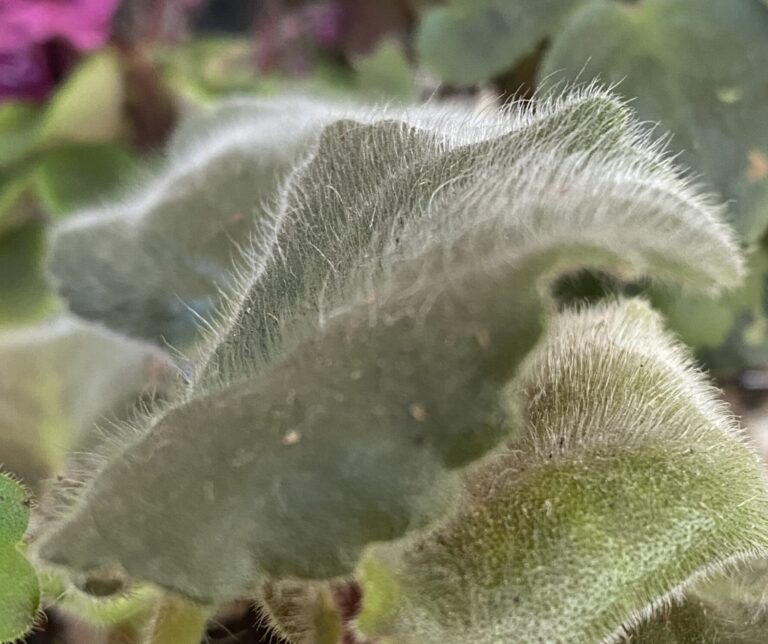
Variegated leaves
If the violet has variegated leaves, it means that there are non-green areas on the leaves. These areas can be white, light yellow or even pink.
In summer, when the weather becomes hot and there is more daylight, variegated leaves can become almost completely green due to higher production of chlorophyl. This is completely normal, so if it happens to your violets, don’t worry! As soon as the season changes, variegated leaves will grow again.
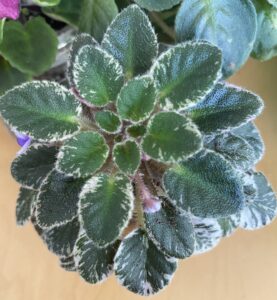
“Cajun’s Lil Forever Blue” end of summer
– the variegation is almost completely disappeared
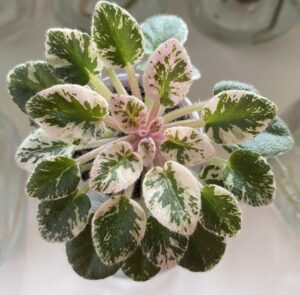
Violet hybrid “Cajun’s Lil Forever Blue” in January
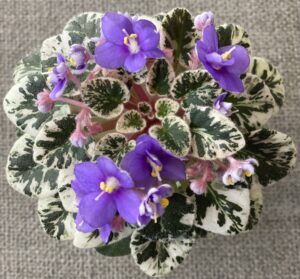
The same hybrid “Cajun’s Lil Forever Blue” in April
Some growers recommend growing violets with variegated leaves in a place with low temperatures (around 17 degrees Celsius / 62.6 Fahrenheit) in order to decrease the production of chlorophyl. But I personally do not recommend it. While less variegation is not a problem, too much of it might cause some health issues to your violet. Due to the lack of green colour, the violet is not able to process light and produce energy, and therefore is unable to bloom and thrive.